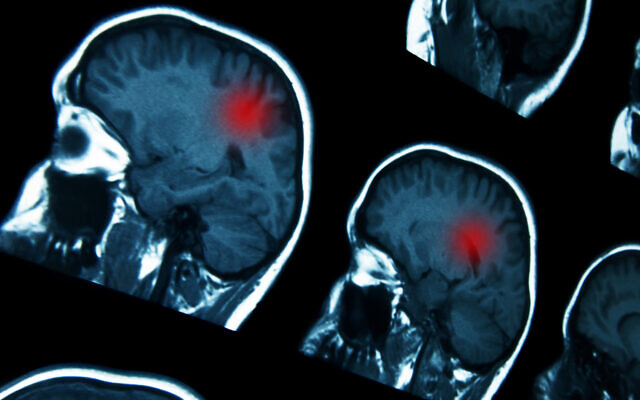In a breakthrough that could boost the effectiveness of treatments against one of the most common and deadliest types of brain cancer, Israeli scientists have discovered that some immune cells that fight the cancer later “switch sides” to help protect the tumor.
Researchers at Tel Aviv University found that the “turncoat” white blood cells — neutrophils, known for their power in killing bacteria and fungi — battle hard against glioblastoma but then change their behavior and end up aiding its growth.
Glioblastoma, the most common type of brain cancer, is one of the most deadly, with the average life expectancy of patients between 12 to 15 months from the moment of detection.
“These immune cells are initially like an army that both kills tumor cells and also recruits other immune cells like t cells to help with the anti-cancer fight,” lead researcher Dr. Dinorah Friedmann-Morvinski told The Times of Israel. “Then in many cases, they start guarding the tumor and stopping other immune cells from getting to it — essentially protecting the tumor and letting it grow more.
“What is more, it secretes proteins that actually help the development of the tumor. So, in short, cells that are at first mobilized by the tumor itself, as anti-cancerous, become pro-cancerous. As a result, they aggravate the damage that the tumor itself creates,” she said.
The scientists made their breakthrough by observing genetically modified mice with glioblastoma. They then verified the hypothesis by analyzing sequencing data from hundreds of glioblastoma patients, which gave them a picture of how the cancer progressed in each patient.
The peer-reviewed research, published in the journal Cell Reports, is likely to pave the way for boosting the effectiveness of glioblastoma treatments, Friedmann-Morvinski predicted.

Illustrative image: an MRI brain scan showing brain cancer (iStock via Getty Images)
Friedmann-Morvinski said that now that it is known that the cells act as “double agents,” drugs can be developed that either will block their impact altogether, block them only once they stop attacking the tumor, or possibly even prevent their “defection” and cause them to continue targeting the tumor.
Her team, which includes PhD student Prerna Magod, is already working on developing such drugs.
“If we prove successful with this, we believe we’ll be able to keep these cells on the ‘right side,’” Friedmann-Morvinski said.
“This will increase the chances of immunotherapy working without the cells counteracting its impact. As such, our finding and our effort to identify drugs are significant.”
Learn Hebrew in a fun, unique way
![]()
You get Israel news… but do you GET it? Here’s your chance to understand not only the big picture that we cover on these pages, but also the critical, juicy details of life in Israel.
In Streetwise Hebrew for the Times of Israel Community, each month we’ll learn several colloquial Hebrew phrases around a common theme. These are bite-size audio Hebrew classes that we think you’ll really enjoy.
You’re serious. We appreciate that!
We’re really pleased that you’ve read X Times of Israel articles in the past month.
That’s why we come to work every day – to provide discerning readers like you with must-read coverage of Israel and the Jewish world.
So now we have a request. Unlike other news outlets, we haven’t put up a paywall. But as the journalism we do is costly, we invite readers for whom The Times of Israel has become important to help support our work by joining The Times of Israel Community.
For as little as $6 a month you can help support our quality journalism while enjoying The Times of Israel AD-FREE, as well as accessing exclusive content available only to Times of Israel Community members.